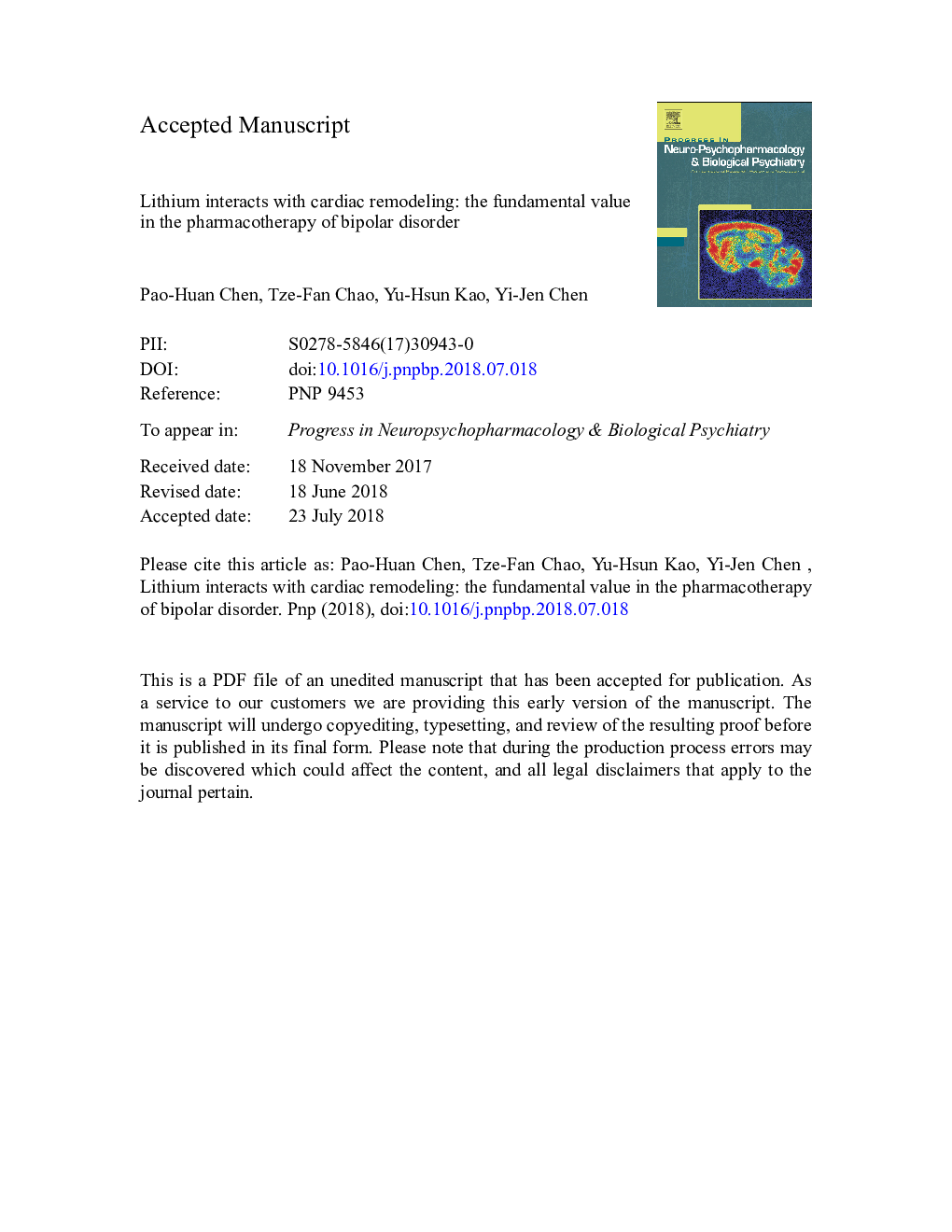| Article ID | Journal | Published Year | Pages | File Type |
|---|---|---|---|---|
| 8537182 | Progress in Neuro-Psychopharmacology and Biological Psychiatry | 2019 | 40 Pages |
Abstract
Patients with bipolar disorder (BD) have an increased risk of cardiovascular morbidity and mortality during the course of their illness. For over half a century, lithium has been the gold-standard medication used to treat the mood burdens of BD. In addition, lithium possesses several biological effects that may modulate cardiovascular risk in patients with BD. In this review, we update the current knowledge of cellular and molecular mechanisms underlying the possible cardiac actions of lithium. The mechanistic insights suggest that lithium at therapeutic levels potentially exerts cardioprotective effects on ischemic hearts by modulating structural and electrical remodeling. The possible cardioprotective actions of lithium may involve an extensive range of signaling pathways, including the Wnt/glycogen synthase kinase-3β, phosphatidylinositol-3-kinase/protein kinase B, phosphoinositide/protein kinase C, and mitogen-activated protein kinase/extracellular signal-regulated kinase cascades. Accordingly, understanding the cardioprotective effects of lithium may lead to the development of a potential strategy for reducing cardiovascular morbidity in patients with BD.
Related Topics
Life Sciences
Neuroscience
Biological Psychiatry
Authors
Pao-Huan Chen, Tze-Fan Chao, Yu-Hsun Kao, Yi-Jen Chen,
